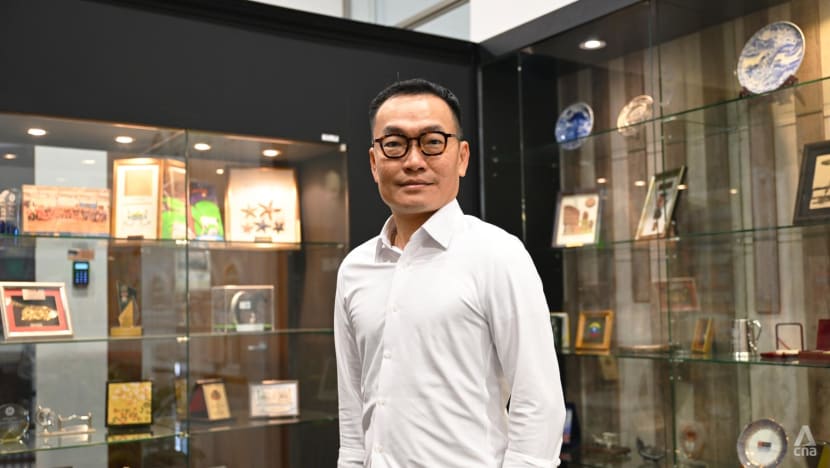Inside the CPIB: Meet the officers tackling corruption in Singapore
They work behind closed doors, but their cases often make headlines. CNA speaks to CPIB officers about their motivations, day-to-day work and the emotional toll of investigating corruption.
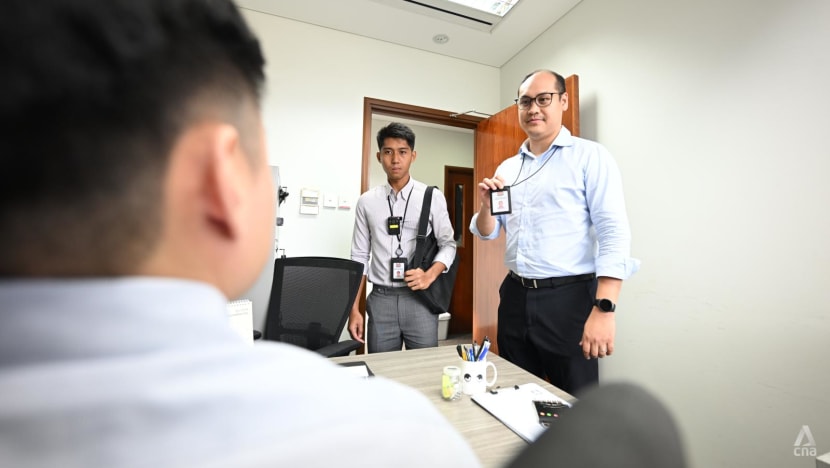
CPIB investigation officers Farhan Azimi and Ashley Santa Maria on Aug 5, 2025. (Photo: CNA/Raydza Rahman)

This audio is generated by an AI tool.
SINGAPORE: What makes someone choose a career investigating corruption – often in silence, sometimes in secrecy? For officers at the Corrupt Practices Investigation Bureau (CPIB), it’s a mix of conviction, resolve and the belief that integrity matters.
When 29-year-old Farhan Azimi was studying criminology at a local university, one type of crime caught his attention during class: corruption.
“Corruption is often thought of as a victimless crime, because often there’s no ideal victim and ideal perpetrator," he said. “But I think that’s incorrect.”
Farhan believes that just because corruption doesn't align with traditional notions of crime, it doesn't mean there are no victims. That realisation inspired him to pursue a career combating it.
When he saw an opening for an investigation officer at the CPIB, he applied. Now, two years into the role, he's investigating the very types of cases he once studied.
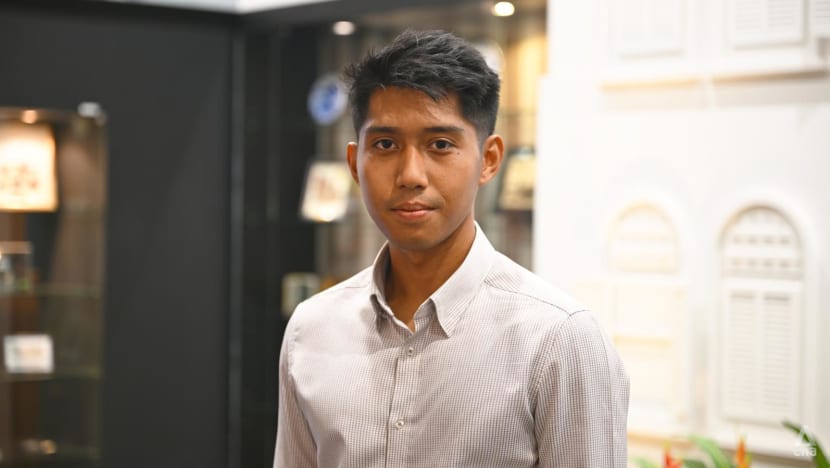
For others, the path to CPIB was less direct. Mr Ashley Santa Maria joined the bureau five years ago after working in the accounting and finance sector, where he reviewed audit reports.
Today, the 35-year-old leads an investigation branch within CPIB and finds purpose in untangling complex cases.
"The complexity of corruption and white collar crimes was something that drew me to this job," he said. "Being on this job has certainly broadened my horizons, as we engage with people from different walks of life.
"It also gives me the confidence to stand up for and do what is right."
Mr Farhan and Mr Santa Maria are among the officers working quietly but tirelessly to root out corruption in Singapore.
Established in 1952 by the British colonial government, CPIB operates under the Prime Minister's Office and is led by a director who reports directly to Prime Minister Lawrence Wong.
The bureau has handled several high-profile cases in recent years, including investigations into former Transport Minister S Iswaran and property tycoon Ong Beng Seng – cases that garnered national attention and led to a 12-month prison sentence for Mr Iswaran.
But what is the day-to-day reality for officers at CPIB? CNA spoke to several of them to better understand the nature of their work, the challenges they face and the values that guide them.
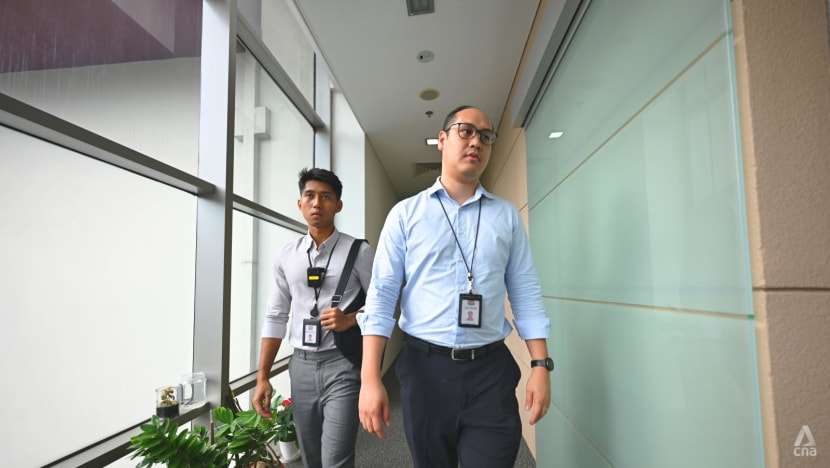
WHAT IT’S LIKE ON THE JOB
Unlike frontline law enforcement, CPIB’s work often takes place out of sight – long hours poring over evidence, tracing financial transactions and conducting discreet interviews.
Ms Ong Shen Yi joined CPIB three years ago after working in the real estate industry. What pushed her to make the leap? News reports of corruption cases.
Like Mr Farhan, she was struck by how overlooked corruption can be compared with other "serious crimes".
She shared the mixed emotions that come with working on a difficult case. "So what I do is really to stay focused, stay patient. Sometimes I will also seek my colleagues’ help, and we can bounce ideas off each other, to see whether there’s any solution to this particular case,” she said.
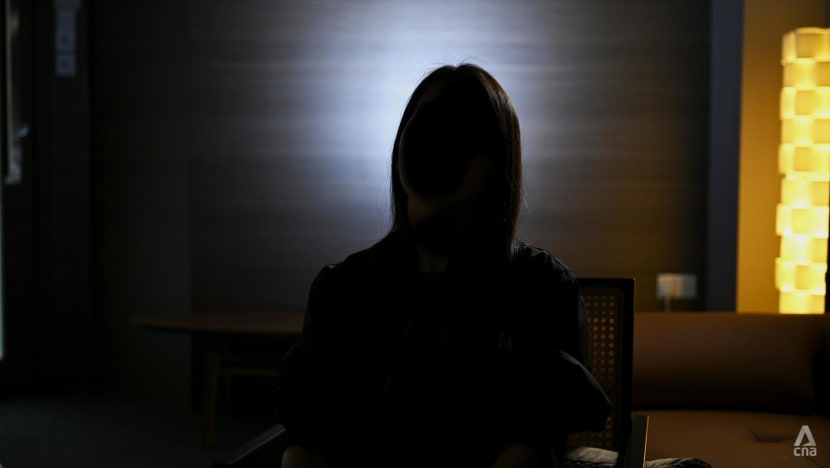
Like Ms Ong, Mr Farhan acknowledges the challenges of building a strong case.
"The nature of corruption cases means that it's hard to sometimes collect a good amount of evidence, or the types of evidence that we actually need, and a good case actually hinges on having the correct kind of evidence," he said.
And no two days are ever the same. "Sometimes, you are talking to members of the public, sometimes you are talking to accused persons, and sometimes you are just spending a whole day just looking at what you've gathered so far ... it's very hard to say what an actual day is like," Mr Farhan added.
For Mr Santa Maria, it all comes down to collaboration. "It takes a team to work together to solve a case, we cannot work in silos," he said. "There's always a learning value for each case, and there's always an aim to do better."
THE HUMAN COST OF CORRUPTION
Despite the low public profile of their work, the emotional weight can be significant.
"It's gaining their trust that sometimes is a bit difficult, and knowing that they potentially may admit to an offence," said Mr Santa Maria.
"How do you treat them, how do you see them? Because you are the first person that they are revealing their secrets to, so I think that's something we have to be mindful of and to approach them and treat them as a human being, and give them the respect that they are admitting and acknowledging what they are doing."
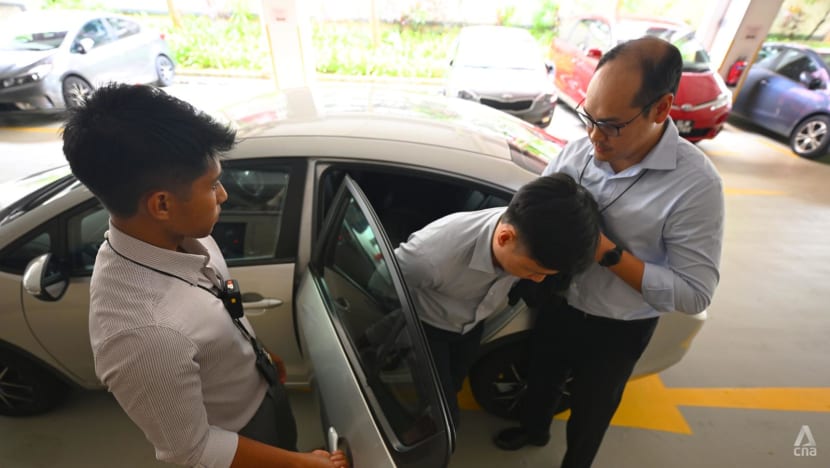
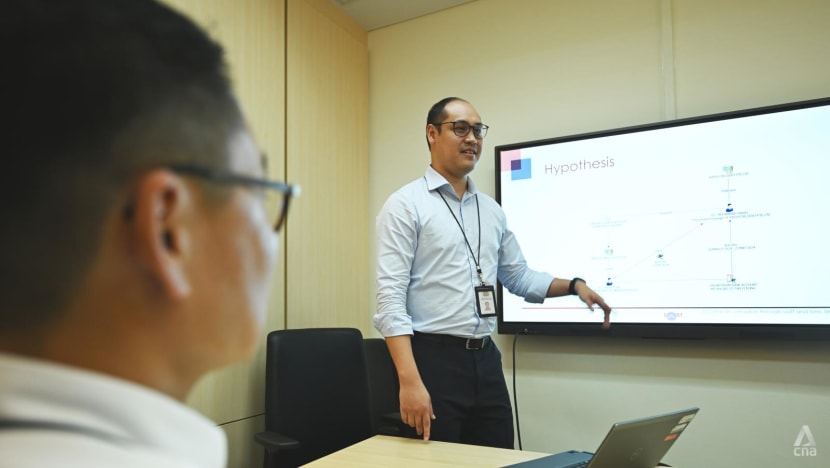
Ms Ong said it can be emotionally difficult to see families affected by the actions of their loved ones.
“After putting in so much effort, after each case is solved, I think there would certainly be a sense of satisfaction,” she said. “But at the same time, these people have families also, so sometimes their families can get affected, and that is the part where you feel a bit emotionally affected as well … after all, we are all human beings.”
Still, she reminds herself to stay objective. “You really need to focus on the facts and use the facts to actually solve the case, rather than emotions,” she said.
Working at CPIB can involve long hours and unexpected developments. "There are definitely times with early mornings, late nights and times where we have to act immediately," said Ms Ong. "But that doesn't happen every time."
Mr Farhan added: “Generally, there’s good work-life balance, and it’s really just about time management.”
Due to the confidential nature of their work, CPIB officers rarely discuss their work outside the office. Even so, family remains a strong pillar of support.
"At the end of the day, I know that when I go home, my mum will cook meals for me, and my dad, he doesn't ask (about my job) but I know when I need him, he's there," said Ms Ong.
And as for whether the lack of public recognition makes their work feel thankless, Mr Santa Maria doesn’t dwell on it.
"There's purpose in the work that we do," he said. "There's an expectation from the public as well as the organisation for us to do the right things, and that we shouldn't abuse that trust, and that's how we carry out our work and what helps us continue doing our work well."
Why does CPIB report to the prime minister – and other questions
CNA also spoke to CPIB’s director of investigations, Mr Fong Wai Kit, to clarify common misconceptions and explain more about how the bureau operates.
Why is the CPIB not under the police?
A common misconception is that the Corrupt Practices Investigation Bureau (CPIB) falls under the Singapore Police Force or the Ministry of Home Affairs. Mr Fong clarified that this is not the case.
“CPIB is an independent anti-corruption agency in Singapore (and) we are the only agency in Singapore to investigate corruption offences under the Prevention of Corruption Act,” he said.
Although CPIB is a government agency under the Prime Minister’s Office, it operates independently. This ensures “a very high level of autonomy and impartiality in our investigations”, he added.
What powers does CPIB have, and do officers wear uniforms?
CPIB officers can arrest, conduct searches, seize evidence and interview suspects. They do not wear uniforms.
In some cases, CPIB officers have made arrests while suspects were in the act of receiving bribes.
One such case, tried in court in 2022, involved a resident technical officer from a private construction firm who accepted bribes from various subcontractors. He was working on a Housing Board Build-to-Order project and was arrested while receiving a bribe from a subcontractor. He was later sentenced to 20 months’ imprisonment, and the bribe money was forfeited.
How does a CPIB operation take place?
According to Mr Fong, operations often begin with public complaints or leads developed through CPIB’s own intelligence gathering.
The bureau evaluates each complaint to determine whether further action is necessary.
“Once we assess a complaint as credible, we will register the complaint for formal investigation,” he said.
“In preparation for active open investigation, officers will formulate some plans, which may include how to proceed with the investigation, who are those people that are involved.”
Investigations typically involve interviews, searches of premises and the seizure of evidence.
“Because our work is actually very specialised, our officers are highly trained, meticulous and have an eye for detail,” he said.
While CPIB does not usually disclose operational details, an example surfaced in parliament in 2023 during discussions about the Ridout Road bungalow rentals.
In that case, which concluded with no wrongdoing found, Foreign Affairs Minister Vivian Balakrishnan described his experience with a CPIB interview: “Let me assure all of you, it is a most uncomfortable, invasive, intrusive, thorough process; and I do not wish it upon any of you.”
What happens when investigations are complete?
Once an investigation is concluded, the CPIB submits its findings to the Attorney-General’s Chambers. If there is sufficient evidence, the case proceeds to court.
“It can lead to fines, jail sentences and forfeiture of bribes, and hence, the receiver will not be able to enjoy the benefits from corruption,” Mr Fong said.
Are there new trends in corruption that CPIB tracking?
While cash remains the most common form of corrupt gratification, Mr Fong noted several emerging trends.
One is the use of virtual currencies, which complicate financial tracing. In response, CPIB has developed procedures since 2018 for the seizure and handling of virtual assets, and officers have received relevant training.
Another trend is the use of digital tools to obstruct investigations. Offenders are using various software applications to “frustrate investigation work” said Mr Fong.
To counter this, the digital forensics and intelligence technology branch ensures officers stay updated with the latest technology.
Offenders are also increasingly using intermediaries to launder corrupt proceeds, making financial tracing more complex. To address this, CPIB continues to strengthen its officers' capabilities, especially in financial investigation.
International corruption is also evolving. To keep pace, CPIB actively engages with overseas counterparts to enhance cooperation and deepen understanding of cross-border issues.
